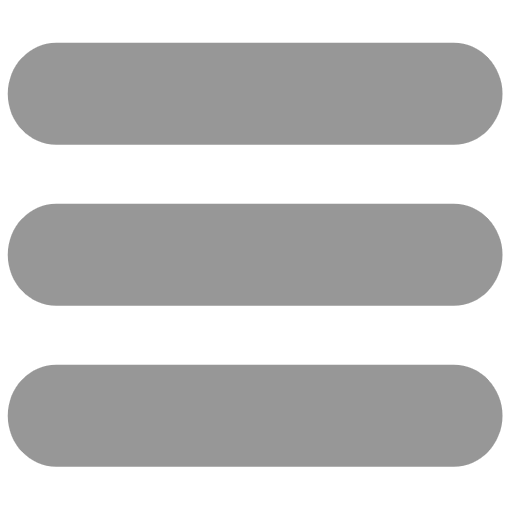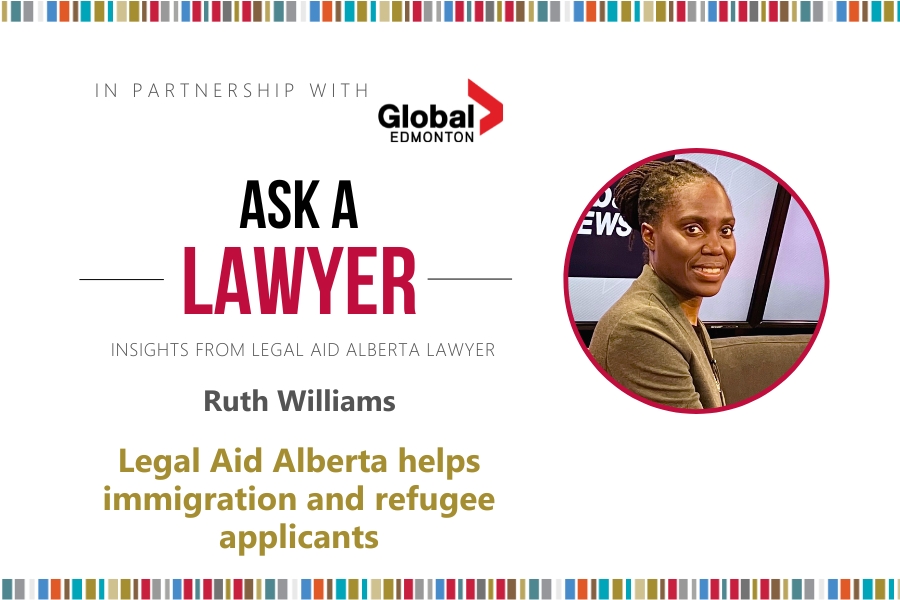Moving to a new country is an enormous undertaking, and one that thousands of people choose when coming to Canada each year. Some have been planning their move carefully; others are fleeing repressive regimes where the rule of law is not in effect.
All are seeking a better life and a new beginning in Canada. And Legal Aid Alberta is on hand to guide those newcomers through what can be a challenging process.
Legal Aid Alberta appeared on Edmonton’s Global Morning News to speak about the ways LAA helps newcomers to our country.
View the Ask A Lawyer segment:
Transcript of the segment:
Vinesh Pratap: Canada is a safe, stable democracy, and that is why it attracts newcomers from all over the world. Here with us today to talk about how Legal Aid Alberta helps immigration and refugee applicants is Legal Aid staff lawyer Ruth Williams. Ruth, thank you so much for being here.
Ruth Williams: You’re welcome.
Vinesh: This is such an important topic because when refugees and immigrants come here, they might come from places where they don’t have trust in their justice systems from their home countries. So how do you deal with circumstances like that? How do you build trust?
Ruth: Creating a safe space for our clients is paramount. For lawyers, the solicitor-client relationship is one that is built on developing trust. When looking for a lawyer, it is really important to focus on finding someone you connect with and can have a positive working relationship with because you will be sharing details of your life that might be sensitive or a little bit embarrassing. Legal Aid Alberta’s staff and roster lawyers are not only knowledgeable about the law but also have a client-centered focus practice.
This means they make working with clients the focus of their practice and foster a collaborative working relationship with those individuals. Additionally, our organization, from time to time in our training, focuses on providing lawyers with guidance for having trauma-informed practices.
Vinesh: Covering all issues that might come up, especially when dealing with clients new to the country. So let’s talk about immigration matters. When I think of Legal Aid Alberta, I don’t think about immigration matters, but it’s part of the portfolio, right?
Ruth: Yes, absolutely.
Vinesh: What issues come up specifically related to immigration?
Ruth: Our focus is on matters before the Immigration and Refugee Board of Canada. The Immigration and Refugee Board is an administrative tribunal that makes decisions about immigration and refugee law cases. The areas we specifically cover are refugee claims before the Refugee Protection Division, refugee appeals before the Refugee Appeal Division, admissibility hearings and detention reviews before the Immigration Division, and removal appeals before the Immigration Appeal Division. We also provide coverage for judicial review applications, which are reviews of negative refugee decisions before the Federal Court of Canada.
Vinesh: How do refugees and immigrants access Legal Aid Alberta’s services? Many might not even know about it.
Ruth: First, visit our website to see if your issue falls under our areas of practice. If it does, contact us after your matter has been referred to the Immigration and Refugee Board but before your hearing date so we have enough lead time. If you’re unsure where you are in the process, just call us.
Vinesh: For individuals who don’t speak English as their first language, how do you overcome those barriers?
Ruth: We encourage people to call with a trusted family member or friend who can interpret for them. If no one is available, call anyway – we can arrange for an interpreter over the phone.
Additionally, we participate in community events and work with immigration service organizations to spread awareness about how to connect with us.
Vinesh: Can people use tools like Google Translate on your website?
Ruth: Yes, that’s a great start to make the webpage more accessible. It will at least give them the basics on how to understand. But absolutely, if it’s all gibberish, just call.
Vinesh: What about costs and timelines? How much does it cost, and how long does it take to get started?
Ruth: Legal aid isn’t free, but it is more affordable than hiring private counsel. If you’re not working or unable to pay at the moment, that’s not a problem – call us anyway. Once you start working, arrangements can be made for an affordable payment plan. It typically takes two to four weeks for a lawyer to be appointed.
We encourage people to connect with individuals in their community who might know someone who would be a good lawyer that they could have this positive working relationship with. A lot of times they’re probably already a roster lawyer, and we have a directory on the website so that you can search the name of the lawyer someone might have referred you to. You can search by the language of the lawyer that you would prefer to work with.
Vinesh: Ruth, thank you so much for coming in and sharing this valuable information today – it’s greatly appreciated.
Ruth: You’re welcome. Thanks for having us.
Vinesh: Legal Aid Alberta specializes in family law, child welfare, domestic violence, immigration law, youth criminal defense, and adult criminal defense. If you have questions for a lawyer or need assistance, you can reach out via [email protected] or visit their website for more information.


